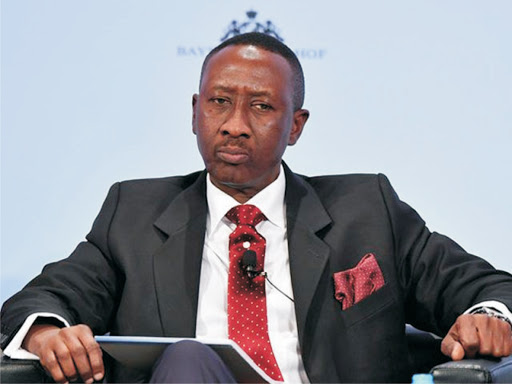Understanding the role of National Security Adviser
On Sunday, August 14, 2022, a group, Arewa Youth Assembly (AYA), released a press statement where it called for the removal of the National Security Adviser (NSA), Babagana Monguno, from office. The group attributed the security challenges bedevilling the nation to the failure of the NSA to live up to the responsibilities of his office. […]

On Sunday, August 14, 2022, a group, Arewa Youth Assembly (AYA), released a press statement where it called for the removal of the National Security Adviser (NSA), Babagana Monguno, from office. The group attributed the security challenges bedevilling the nation to the failure of the NSA to live up to the responsibilities of his office. Curiously, the group did not state those responsibilities of the Office of the National Security Adviser (ONSA) which Monguno had failed to live up to.
Indeed, there have been groups and individuals calling for the removal of NSA Monguno and their voices are beginning to grow from isolated whispers to coordinated clamours.
- Troops raid bandit’s camp, recover 27 fertiliser bags used for IEDs production
- JCI awards 10 ‘exceptional youths’ in Nigeria
Recently, a group known as North East Elders for Peace and Development (NEEPD) released a similar statement calling on President Muhammadu Buhari to remove Monguno.
While it is understandable for citizens to be agitated, going by the worrisome cases of insecurity highlighted in the activities of terrorists, bandits, kidnappers and other criminal elements across the country, it is important for the public to be circumspect.
Monguno himself, after a recent National Security Council meeting, admitted that Nigerians are tired of the current security challenges facing the nation. However, what groups such as AYA, NEEPD and GDDI, as well as individuals who have made the demand for Monguno’s sack an agenda fail to understand is that neither ONSA as an office nor the NSA as an individual gets involved in actual military operations.
As the name implies, the National Security Adviser’s primary responsibility is to counsel the president on issues of national security. The misunderstanding, whether deliberately or by sheer ignorance, of the responsibilities of the NSA can be deduced from the activities of the various groups and individuals calling for Monguno to be removed from office. They all share one thing in common: Having or showing an inadequate awareness of the facts on how the ONSA functions.
For the benefit of the uninitiated, Section 4 of the National Security Agencies Act, 1986, which disbanded the Nigerian Security Organisation and created three security agencies in its place – the Defence Intelligence Agency, the National Intelligence Agency and the State Security Service – specifically empowered the President, as the Commander-in-Chief of the Armed Forces, to appoint a Coordinator on National Security. Section 4(2) of the Act states that: “The Coordinator on National Security shall be a Principal Staff Officer in the Office of the President, Commander-in-Chief of the Armed Forces.”
And Section 4(3) defined the role of the Coordinator on National Security to include: Advising the President, on matters concerning intelligence activities of the (created) agencies; Making recommendations in relation to the activities of the agencies to the President as contingencies may warrant; Correlating and evaluating intelligence reports relating to national security and providing the appropriate dissemination of such intelligence within Government using existing facilities as the President may direct; Determining the number and level of staff to be employed by each agency established by the Act; and Doing such other things in connection with the forgoing provisions of this section as the President may determine.
Later, Section 1 of the National Security Agencies Decree, 1986 (INSTRUMENT NO. NSA 1) transferred the functions of the Coordinator on National Security to the National Security Adviser.
Accordingly, advising the president on matters concerning intelligence activities and making recommendations to him on issues of national security are the main functions of the NSA. And except the president comes out to say his NSA has not been advising him properly or has not been making actionable recommendations to him on how best to tackle insecurity, how does an individual or group determine that insecurity exists due to the failure of the NSA to live up to the responsibilities of his office?
Since becoming the NSA, Mungono has never engaged in buck passing and has carried out his responsibilities to the satisfaction of both his principal and other stakeholders in the defence and intelligence community both at home and abroad.
Rather than dwell in the futile campaign seeking the removal of the NSA by means of ill-informed premises, concerned individuals and groups should shun the propagation of personal interests and explore areas of collaboration and collective effort at tackling what happens to be a common adversary posing a huge threat to our nationhood.
Kayode Adeniyi writes from Abuja.
